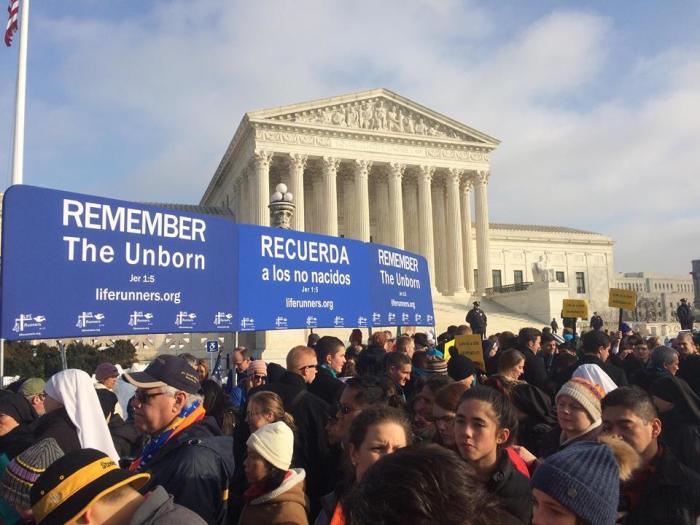Over 200 members of Congress urge Supreme Court to reconsider Roe v. Wade

More than 200 members of Congress are urging the United States Supreme Court to "reconsider" the landmark 1973 ruling that legalized abortion nationwide.
In an amicus brief signed by 38 senators and 168 members of the House, the federal legislators urged the nation's highest court to revisit the core holdings in the cases that have enshrined abortion as a constitutional right for decades, particularly Roe v. Wade and Planned Parenthood v. Casey, a 1992 decision that upheld and reinforced Roe.
All but two of the signers of the brief were Republicans. Pro-life Democratic Reps. Collin Peterson of Minnesota and Dan Lipinski of Illinois also added their names to the document.
The amicus brief signed by these members of Congress comes ahead of an upcoming Supreme Court review of a contested Louisiana law in June Medical Services v. Gee. Oral arguments will be heard in March. Louisiana's Unsafe Abortion Protection Act, which has been on the books since 2014, requires abortionists to have admitting privileges at a hospital within a 30-mile radius.
The Fifth Circuit Court of Appeals has maintained that the Louisiana law is distinctly different from a near-identical Texas statute that was adjudicated a few years ago at the Supreme Court. In 2016, the high court ruled in a 5-3 decision in Whole Woman's Health v. Hellerstedt that the Texas law was not constitutional because it placed an undue burden on women seeking abortions.
The Fifth Circuit hears cases from both Texas and Louisiana and held last year that “stark differences” exist between the factual records in the two cases.
Lawmakers concur but go even farther, arguing in the brief that "the Fifth Circuit's struggle to define the appropriate 'large fraction' or determine what 'burden' on abortion access is 'undue' illustrates the unworkability of the 'right to abortion' found in Roe v. Wade ... and the need for the Court to again take up the issue of whether Roe and Casey should be reconsidered and, if appropriate, overruled."
The Texas case, they say, "created an overly subjective 'balancing' test, leading to confusion among Congress and state legislatures alike as to which laws might withstand constitutional scrutiny," and ask the high court to uphold the appellate court's 2018 ruling in favor of the Louisiana law.
Several notable Republican senators up for re-election this year — including those with extensive pro-life voting records — did not sign onto the brief, including Senate Majority Leader Mitch McConnell of Kentucky and Lindsey Graham of South Carolina.
The Gee case is the first abortion rights case to be heard at the U.S. Supreme Court level since the confirmation of President Trump's nominees, Justices Neil Gorsuch and Brett Kavanaugh, to the bench. Some speculate that with the addition of Kavanaugh, who replaced the frequent swing vote of Anthony Kennedy, pro-life advocates now have more reason to hope for a favorable ruling and for bolder steps against abortion precedent.
Former Alliance Defending Freedom attorney and conservative commentator David French warned against such hopes in a National Review op-ed last October, stressing that it's unlikely that the Supreme Court will tackle the larger issues that federal legislators are now asking the court to reconsider.
"Don’t count on any language that casts doubt on the core holding in Roe or Casey," French said at the time, speaking of the high court's review of the Louisiana statute soon after the justices agreed to hear it.
"Louisiana is mainly fighting to keep its law alive, not to remake abortion jurisprudence in America, and the Court doesn’t often give a litigant more than it asks for. And while pro-life Americans can be hopeful for a good outcome, I’d caution against outright optimism."
He concluded: "For the abortion jurisprudence of a post-Kennedy court, the age of speculation is about to end. The age of analysis will soon begin."




























